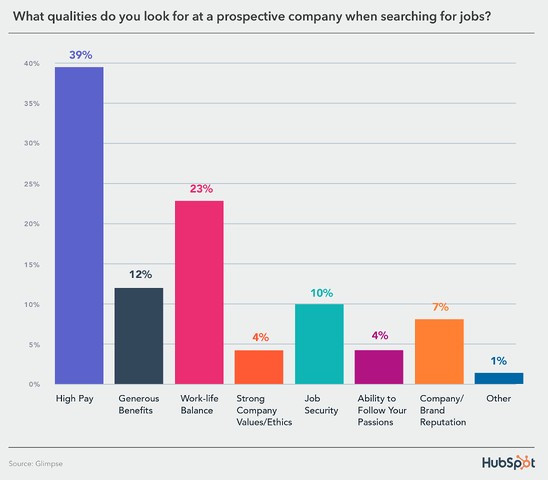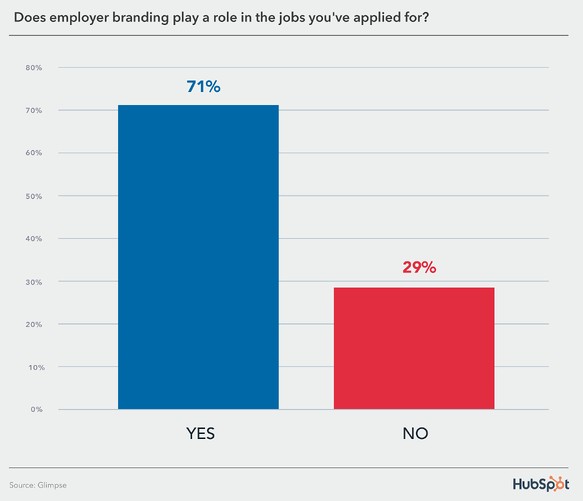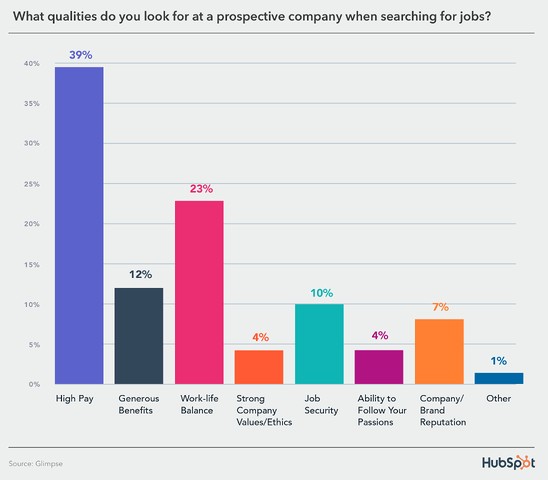You can create job listings and career pages explaining your company values and giving in-depth information, but what you create might differ from what marketers look for during their job hunts.
We surveyed marketing job seekers to ask them where they go to find job listings and what attracts them to company career pages so you can learn from their insight and optimize your pages to attract talent.
Where do marketers find job listings?
Survey respondents primarily reported that they find jobs on job listing sites like Indeed and Glassdoor. They also visit LinkedIn and find jobs via Google search. Very few noted using magazines or Craigslist.
When marketers visit a specific company’s career page during a job search, the top reasons they land there are:
- Curiosity about a company and interest in learning more about culture, job details, benefits, and pay.
- An aggregate site has listed the website in a job description or has instructed them to fill out an application on a company page.
- Recommendations or reviews from friends have inspired them to visit the website, or a job seeker is inspired by a friend's current success at the company.
- Advertisements, email notifications, or social media content that has inspired them to visit the company page or directly linked them to a company page.
Key Takeaways for Employers:
Based on these survey results, speak to marketing job seekers' interests by sharing your job listings on sites like Glassdoor, Indeed, or other job boards so potential applicants have more opportunities to come across your openings.
As many job seekers also land on company pages as a first step, ensure that you have an up-to-date, high-quality site that features all available job openings and essential company information.
What qualities do marketers look for in prospective companies when searching for jobs?
When searching for jobs, the most important qualities that job seekers look out for are high pay, work-life balance, and generous benefits.

Key Takeaways for Employers:
Marketing job seekers reported that they look for high pay, generous benefits, and a work-life balance, so make sure you explicitly call out these three things in your job listings.
Make base pay clear and ensure it aligns with job expectations and job duties, outline the benefits you offer (like PTO, health insurance, employee development programs, etc.), and talk about how you promote a healthy work-life balance and give employees the space to pursue passions outside of work.
The Impact of Employer Branding on Marketing Job Seekers
71% of survey respondents say employer branding played a significant role in the jobs they applied for.

As a refresher, employer branding is how you market your company to job seekers and internal employees, as well as your reputation among employees and the general workforce. 69% of employees think it’s extremely/very important for their employer to have a brand they’re proud to support, and active job seekers are more likely to apply for a job if the employer actively manages its employer brand.
Key Takeaways for Employers:
It’s essential to actively manage your employer brand with an employer branding strategy, and it's even more important to be genuine and truthful with your branding efforts, as job seekers quickly notice red flags and empty promises.
Red Flags Marketing Job Seekers Look Out For
We also asked marketers if there are any aspects of employer branding content, job listing pages, or career pages that raise red flags during a job search. The most commonly noted red flags are:
- General lack of information about a company, salary, and job description. Job seekers want details about what’s expected of them and how much they’ll be paid. And they want to know everything they can about your company up front, like a description of company values and basic information like address and contact information.
- Poor website user experience and grammar issues. A disorganized website raises red flags for job seekers who want to navigate through an up-to-date website and learn more. They also want to read through a job listing free of spelling issues and major errors.
- Keywords that signal a reliance on hustle culture. Job seekers are quickly turned away by words and phrases related to hustle and grind culture, like “Work hard play hard,” or descriptions like “we are a family,” as they believe this can lead to favors being asked in the name of family vs job.
Job seekers also find red flags in many bad reviews and ratings, listings that look like advertisements or scams, callouts for “on-the-spot-hiring,” and a seeming lack of company culture.
Over to You
Now that you know more about marketing job seeker expectations, it’ll be easier to create a job search process that speaks to your audiences’ needs and helps them make informed decisions about applying to your company and how you’ll meet their expectations if they do.


